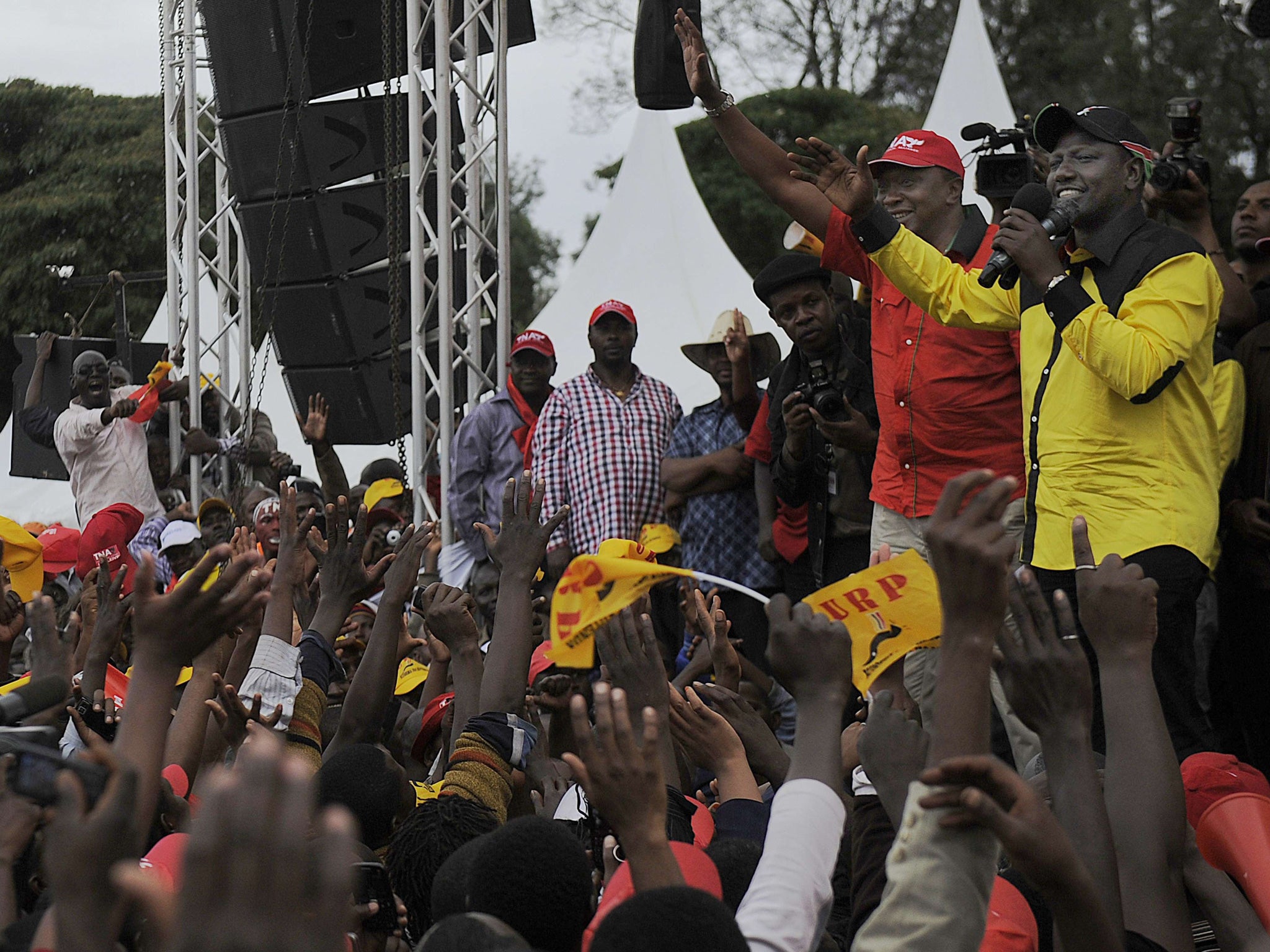Kenyan presidential contenders face legal fight over 2008 violence
Political allies signed electoral pact in what is seen as an attempt to avoid trial at The Hague

A civil rights group in Kenya has launched a legal bid to prevent two leading politicians who are facing trial at The Hague from standing in presidential elections due next March.
Uhuru Kenyatta, the son of Kenya’s founding president, and William Ruto, a former minister, signed an electoral pact at the weekend in what is seen as an attempt to avoid a trial at the International Criminal Court (ICC), due to start a month after the East African nation goes to the polls.
Kenyan-based pressure group, the International Centre for Policy and Conflict, persuaded a local court to hear a challenge to the pair’s right to stand on the grounds that they have been indicted by the ICC for inciting the violence that followed Kenya’s last election almost five years ago. An attempt to bar them from running was thrown out by another court last week.
Should the duo succeed in winning the vote and then refuse to stand trial – they are running second and third in recent opinion polls – East Africa’s largest economy could face sanctions by the UN Security Council.
The Kenyatta-Ruto alliance brings together the two alleged ringleaders of the warring sides in post-election violence which saw 1,500 people killed and hundreds of thousands of Kenyans displaced from their homes in early 2008. The pair were bitter rivals at the previous vote but have put that aside now that they face war crimes charges. Mr Kenyatta, a former Deputy Prime Minister, will lead the ticket, with Mr Ruto running as vice-presidential candidate. Their main opponent is Prime Minister Raila Odinga, who was denied the presidency last time amid hotly contested results that sparked intercommunal violence.
With Kenya on the brink of civil war between ethnic communities, Mr Odinga eventually joined a unity government with his opponent Mwai Kibaki, who is standing down after two terms as president.
Mr Kenyatta comes from Kenya’s largest ethnic group, the Kikuyus, while Mr Ruto commands the loyalty of the Kalenjin – an amalgam of several tribes whose political power base is in the Rift Valley.
Their willingness to exploit tribal divisions has raised fears of a re-run of the chaos that followed the last election.
“We have agreed we are uniting on behalf of the people of Kenya. Our alliance is not for fighting anyone. We are uniting for the sake of the people of Kenya,” Mr Kenyatta told a rally on Sunday, arranged to make the political marriage official. Both men have invested heavily in portraying the ICC as a threat to Kenya’s sovereignty: “To our foreign friends, I would like to say this: we are willing to work with all, but we also demand our respect as citizens of this republic.”
While both candidates have strong support within their own communities, they have been widely criticised by rights groups in Kenya, where as many as 150,000 people are still living in camps for the displaced after the last crisis.
Local political commentator Makau Mutua called the alliance “nonsense on stilts” and said that their real objective was to retain power.
Join our commenting forum
Join thought-provoking conversations, follow other Independent readers and see their replies
Comments